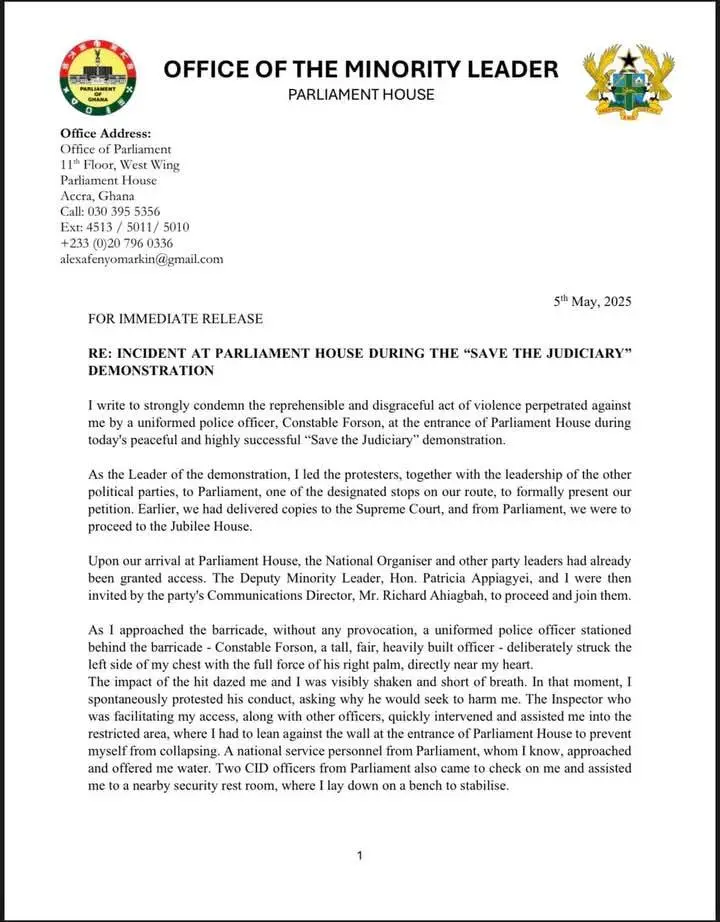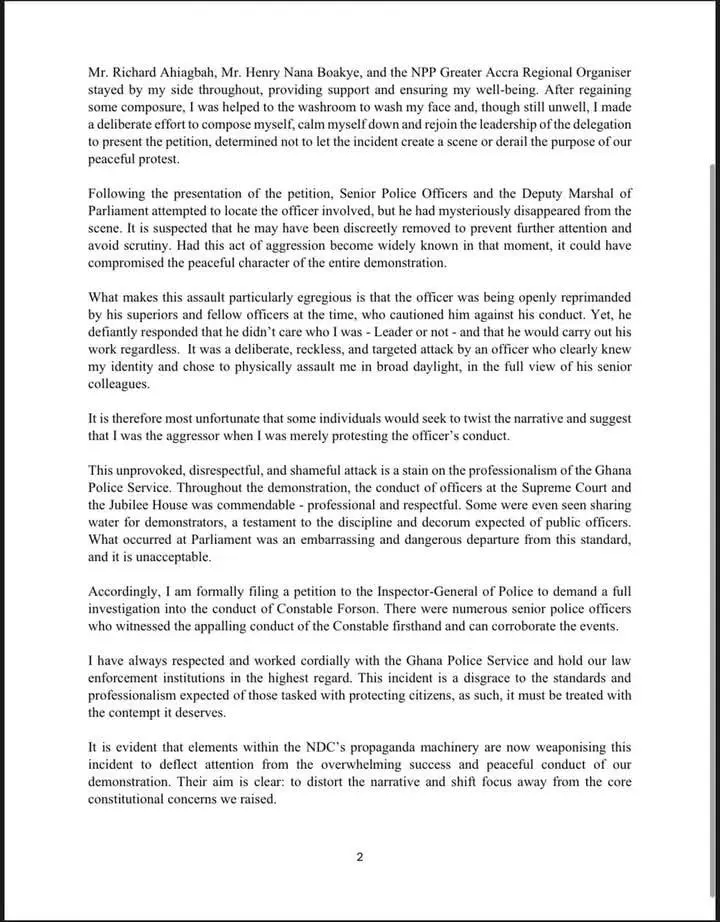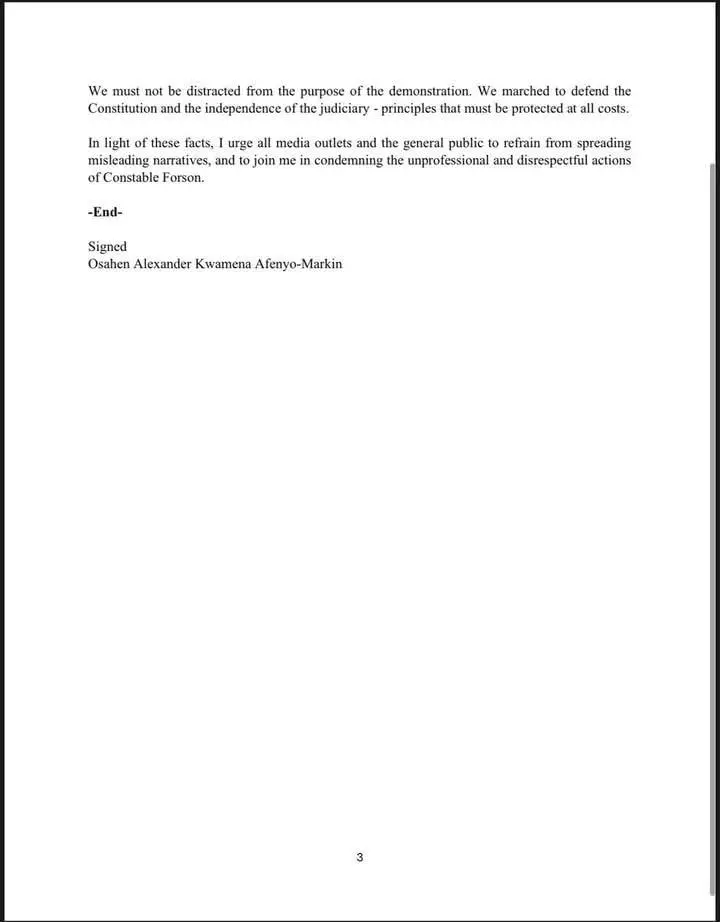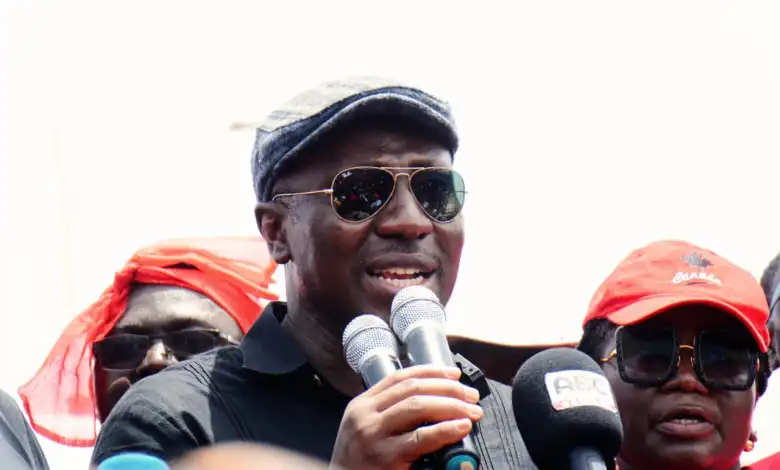Minority Leader Alexander Afenyo-Markin has stirred public concern with claims that he was violently assaulted by a police officer during the “Save the Judiciary” protest held on Monday in Accra. His statement, released after the event, details the incident and calls for accountability.
Here are the key takeaways:
1. Allegation of assault by police officer
Afenyo-Markin alleged that a police officer identified only as Constable Forson struck him near the heart as he led protesters to Parliament. “Without any provocation,” he said, the officer “deliberately struck the left side of my chest with the full force of his right palm.”
2. Immediate physical impact
The Effutu MP described the blow as severe, saying he was “dazed,” “shaken,” and “short of breath.” Officers nearby had to rush to his aid to prevent him from collapsing.
3. Mysterious disappearance of the officer
According to Afenyo-Markin, after the incident, senior police officers and the Deputy Marshal of Parliament attempted to locate Constable Forson, but he had “mysteriously disappeared,” raising suspicions that he may have been quietly removed from the scene.
4. Denial of provocation and refutation of rumours
The Minority Leader dismissed reports that he was the aggressor, calling such claims an attempt to distort the facts. “It is therefore most unfortunate that some individuals would seek to twist the narrative,” he said.
5. Formal petition in the works
He has confirmed plans to submit a formal complaint to the Inspector General of Police, demanding an investigation into the officer’s conduct.
6. Accusation against the NDC
Afenyo-Markin accused the ruling National Democratic Congress of politicising the incident. He claims the party is using it to distract from the peaceful and successful nature of the protest.
7. Wider political context and protest goals
The demonstration, led by the New Patriotic Party and supported by three smaller opposition parties, was in response to the suspension of Chief Justice Gertrude Torkornoo. Protesters argued the move was politically motivated, echoing concerns raised earlier by the Ghana Bar Association.




